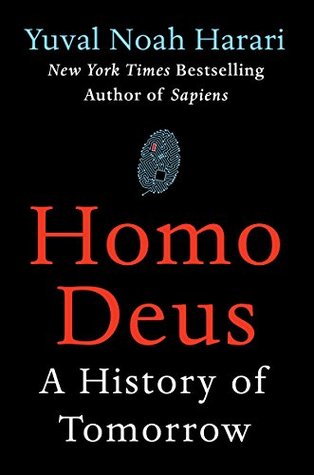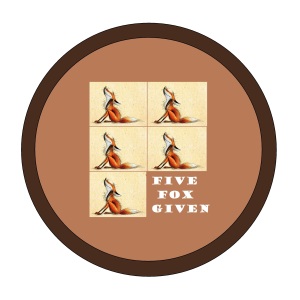
ABOUT THE AUTHOR:
Professor Harari was born in Haifa, Israel, to Lebanese parents in 1976. He received his Ph.D. from the University of Oxford in 2002, and is now a lecturer at the Department of History, the Hebrew University of Jerusalem.
He specialized in World History, medieval history and military history. His current research focuses on macro-historical questions: What is the relation between history and biology? What is the essential difference between Homo sapiens and other animals? Is there justice in history? Does history have a direction? Did people become happier as history unfolded?
Prof. Harari also teaches a MOOC (Massive Open Online Course) titled A Brief History of Humankind.
Prof. Harari twice won the Polonsky Prize for Creativity and Originality, in 2009 and 2012. In 2011 he won the Society for Military History’s Moncado Award for outstanding articles in military history.
He specialized in World History, medieval history and military history. His current research focuses on macro-historical questions: What is the relation between history and biology? What is the essential difference between Homo sapiens and other animals? Is there justice in history? Does history have a direction? Did people become happier as history unfolded?
Prof. Harari also teaches a MOOC (Massive Open Online Course) titled A Brief History of Humankind.
Prof. Harari twice won the Polonsky Prize for Creativity and Originality, in 2009 and 2012. In 2011 he won the Society for Military History’s Moncado Award for outstanding articles in military history.
DESCRIPTION:
Yuval Noah Harari, author of the critically-acclaimed New York Times bestseller and international phenomenon Sapiens, returns with an equally original, compelling, and provocative book, turning his focus toward humanity’s future, and our quest to upgrade humans into gods.
Over the past century humankind has managed to do the impossible and rein in famine, plague, and war. This may seem hard to accept, but, as Harari explains in his trademark style—thorough, yet riveting—famine, plague and war have been transformed from incomprehensible and uncontrollable forces of nature into manageable challenges. For the first time ever, more people die from eating too much than from eating too little; more people die from old age than from infectious diseases; and more people commit suicide than are killed by soldiers, terrorists and criminals put together. The average American is a thousand times more likely to die from binging at McDonalds than from being blown up by Al Qaeda.
What then will replace famine, plague, and war at the top of the human agenda? As the self-made gods of planet earth, what destinies will we set ourselves, and which quests will we undertake? Homo Deus explores the projects, dreams and nightmares that will shape the twenty-first century—from overcoming death to creating artificial life. It asks the fundamental questions: Where do we go from here? And how will we protect this fragile world from our own destructive powers? This is the next stage of evolution. This is Homo Deus.
With the same insight and clarity that made Sapiens an international hit and a New York Times bestseller, Harari maps out our future.
REVIEW:
Homo Deus was an easy choice. I am a modern human being and am extremely worried when it comes to the Earth that we are likely to leave to our children, therefore this read was a curious and extremely accurate prediction as to what is to come next.
In very few words I can sum up my overall opinion of this book and it is:
Shocking. Entertaining. Incredibly thoughtful. Freaking fantastic!
I absolutely loved every single bit of it. It is intelligent, insightful and pleasing to the last bit.It poses some excellent questions that make you question your existence. Why do we think of ourselves as superior to all other life forms. Why do we have such strong faith in imaginary things such as money, gods, human rights, companies...And what will become of us if dataism succeeds. All in all, it's clear that we can't keep living like this. It is quite the philosophical jewel and causes a lot of reflection. This is why my review came so late after I finished the book. I had to sit back and reflect on the 2o+ pages of comments I had laying around.
It is for those of us enthusiasts who follow technological and scientific trends in the 21st century, and ponder on the practical and philosophical implications of such rapid intellectual growth. It looks at history, science and the views of social philosophers. Its arguments provide sufficient background to enable the reader to consider what has been, what is now, and what may happen next.
From that, seemingly benign start, of wanting to expand our powers of control over our lives and our environment; we might be drawn into a post-humanism "religion" whereby we ourselves as humans are not the centre of the universe and where, in an ironic gesture of fate, we become a component or a spare part of the post-humanism machine. People created the liberal humanist tradition and announced the death of God in the nineteenth century and it might be now the time to announce the new religion and announce humanity to have done its role.
Whether you are inclined to believe him or not, to think that he is a modern day prophet or an incurable pessimist, reading this book is bound to make you ask questions and that is a good thing. At least as long as we can ask our own questions and search inside us for their answers.
Whether you are inclined to believe him or not, to think that he is a modern day prophet or an incurable pessimist, reading this book is bound to make you ask questions and that is a good thing. At least as long as we can ask our own questions and search inside us for their answers.


No comments:
Post a Comment